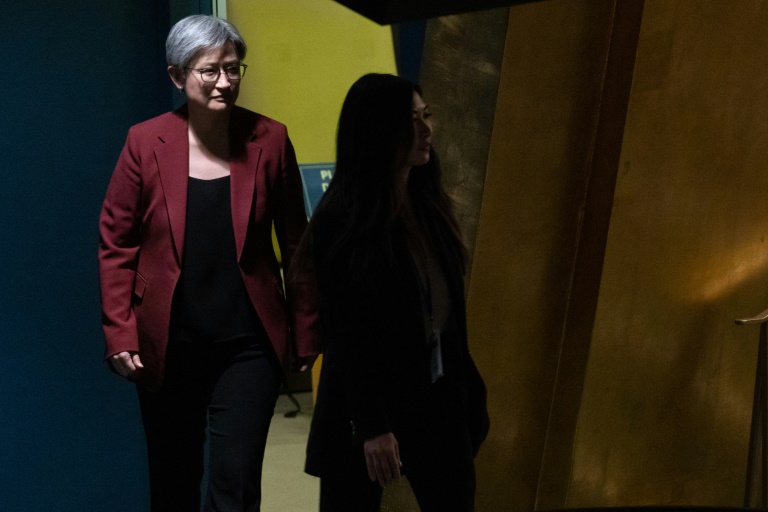Australia reverses recognition of Jerusalem as Israeli capital

Australia’s Minister of Foreign Affairs Penny Wong at UN headquarters on September 23, 2022.
Sydney – Australia said Tuesday it would no longer recognise West Jerusalem as Israel’s capital, reversing a contentious decision by the previous conservative government.
Foreign Minister Penny Wong said the city’s status should be decided through peace talks between Israelis and Palestinians, and not through unilateral decisions.
“We will not support an approach that undermines” a two-state solution, she said, adding: “Australia’s embassy has always been, and remains, in Tel Aviv”.
In 2018 a conservative government led by Scott Morrison followed former US president Donald Trump’s lead in naming West Jerusalem as the Israeli capital.
The move caused a domestic backlash in Australia and caused friction with neighbouring Indonesia — the world’s most populous Muslim-majority nation — temporarily derailing a free trade deal.
Jerusalem is claimed by both Israelis and Palestinians, and most foreign governments avoid formally declaring it the capital of any state.
“I know this has caused conflict and distress in part of the Australian community, and today the government seeks to resolve that,” Wong said.
She accused the Morrison government of being motivated by a by-election in a beach-side Sydney suburb with a sizable Jewish community.
“You know what this was? This was a cynical play, unsuccessful, to win the seat of Wentworth and a by-election.”
The centre-left Labor party, with Anthony Albanese as prime minister and Wong as foreign minister, came to power in May 2022.
Wong insisted that the decision did not signal any hostility to Israel.
“Australia will always be a steadfast friend of Israel. We were amongst the first countries to formally recognise Israel,” she said.
“We will not waver in our support of Israel and the Jewish community in Australia. We are equally unwavering in our support of the Palestinian people, including humanitarian support.”
Israel occupied Arab east Jerusalem in the 1967 Six Day War and later annexed it, declaring the entire city its “eternal and indivisible capital”.
Palestinians claim the eastern part as the capital of a future Palestinian state.
– Symbolism –
Canberra’s decision is unlikely to come as a shock to the Israeli government.
The policy reversal was foreshadowed by the removal of language on the Israeli capital on the website of Australia’s Department of Foreign Affairs and Trade.
But it will likely cause unease, according to Ran Porat, a historian and researcher at Melbourne’s Monash University.
Even though Australia is not a major player in peace talks, he said: “In the Middle East in general symbolism is very much at the centre of many conflicts. Symbolism is not negligible, it’s not unimportant.”
The move could be seized on Israel’s opposition Likud, led by Benjamin Netanyahu as evidence of the government’s failings ahead of November 1 elections.
Prime Minister Yair Lapid will be disappointed, Porat added, but the response “has to be walking between the disagreement and not souring relations with Canberra.”
